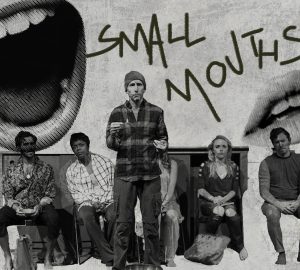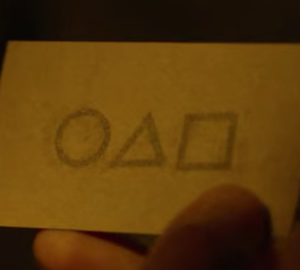A modernized ‘Macbeth’ at the Synchronicity Theatre
By Rachel Carp
The Synchronicity Theatre brings “Macbeth” to Atlanta with an adaptation of the play that puts teenage girls in the place of Scottish war generals and kings. Adapted by Erica Schmidt for a 90-minute one-act structure with no intermission, the play explores power, social dynamics, sexuality and violence.
Synchronicity Theatre’s production, directed by Jennifer Alice Acker, translates this story for modern audiences by using an all-female cast and modern technology. The girls wear school uniforms, the set is an abandoned field in America and the characters frequently use phones or computers.
“It might seem strange to pick Macbeth at first glance because it doesn’t play into the stereotypes of teenage girls, which is why it’s so successful. It has the same themes as in high school- power, status, play, the navigation of social hierarchies,” Acker said.

The production reflects the universality of Shakespeare, having been adapted many times around the world. The Shakespeare Tavern Playhouse in Atlanta put on its own production of “Macbeth” last year. Online there are parodies and abridged cartoon versions of his works. Some maintain the historical setting while others move the setting to a 20th-century war zone or a 21st episodic webseries where characters deliver soliloquies to their camera.
Traditionally, the soliloquy can be thought of as a conversation with the self, an invisible audience, or a god. Acker and dramaturg, Elliott Folds, struggled with translating this for both a modern cast and a modern audience.
“The easiest point of connection for 2019 girls, the answer for us, is technology- vlogging, Snapchat, Instagram. It’s an invisible scene partner who’s never going to talk back to you as you work through something,” Folds said.
Breaking from tradition not only in casting and setting but also in acting. The characters never acknowledge the audience. They only watch each other, transforming the audience from companions to complicit voyeurs.
“This motivated the girls to play only for each other. They tried to impress each other by playing harder,” Acker said.

This competition intensifies throughout the play, starting as friendly teasing in the opening scenes to violent fighting and stabbing at the end. The image of a young teenage girl screaming and fighting is becoming somewhat familiar to our culture. Horror films like ‘Carrie’ and ‘Heathers’ depict young girls in desperate fights for their lives.
“There’s something really exciting in having somebody operate in and be informed by this patriarchal culture and then it all the goes out the window and now it’s her objective to survive. I’m thinking about the ‘Halloween’ movie with Jamie Lee Curtis wielding a knife desperately trying to survive against all odds,” Folds said.
The adapted script also brings in contemporary music like Beyonce’s “Bow Down” for Macbeth’s coronation and the Sex Pistols’ “God Save the Queen” for later battles.
“We kept asking, ‘How would a teenage girl do this?’” said Acker.
The production’s specificity to teenage girls goes beyond technology and pop music, they also wear plastic crowns, use football gear and biking helmets for armor, eat Halloween candy, greet each other with handshakes, and drink from red solo cups during party scenes. The first murders use red string and lipstick to signify blood and are almost comedic. The audience is familiar with many of these and so laughs along with the characters, until Macbeth’s second visit with the witches, where instead of string or lipstick, we see blood in the form of a used tampon — not as a product of violence but a tool for divination.
“It’s so visceral, so uniquely of these girls — you can’t use a tampon in any other production of Macbeth. It’s so charged in this environment,” said Folds.
Audience reactions range from laughter to concern. Several people exclaimed when the girls engaged in choreographed stage-fights. The final murder of Macbeth came only after a lengthy battle and the repeated stabbing by three girls. At several points during the fight scene, actors on stage cry for them to stop and attempt to break up the fight.
“Voyeurism is a key component of horror. You’re not supposed to be doing something and I’m not supposed to be seeing it,”added Folds.



























